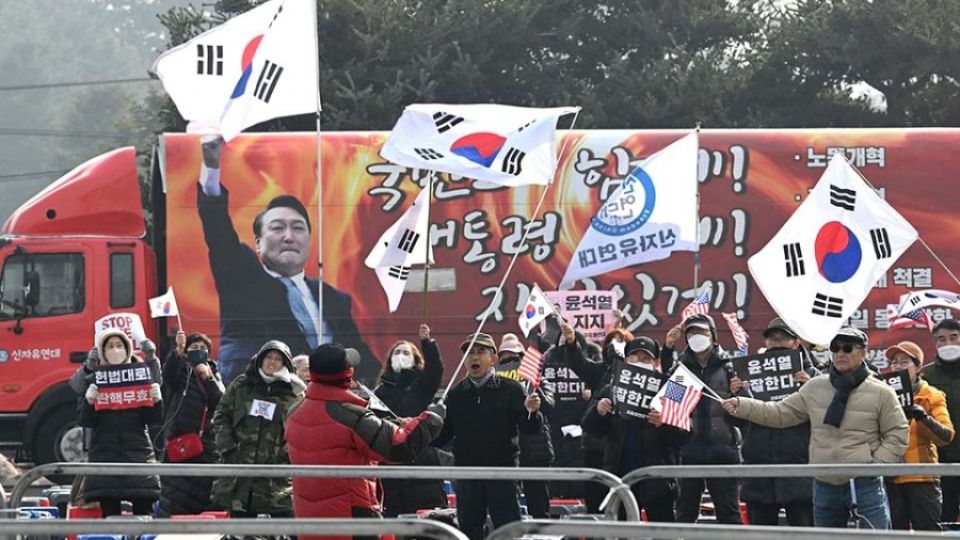January 23, 2025
SEOUL – A short sentence that the suspect is feared to tamper with evidence is all that a judge of the Seoul Western District Court cited as the reasoning for the issuance of an arrest warrant for President Yoon Suk Yeol.
The judge did not mention grounds for the judgment or guesses about whether the allegations may be true or not, which judges usually do in issuing or denying such a warrant.
Considering that public opinion is split on the grave issue and a possible flare-up of societal conflict, the judge should have given a detailed justification for the arrest. The lack of explanation naturally gave rise to a heated discussion on evidence tampering concerns. It would not be easy to tamper with evidence because suspected conspirators of insurrection have already been detained.
Yoon supporters suspect judges of the Seoul Western District Court of being on the same wavelength ideologically as the opposition Democratic Party of Korea, which recently recommended two judges of the Seoul Western District Court as new justices of the Constitutional Court to try Yoon’s impeachment. They also suspect that the Corruption Investigation Office for High-ranking Officials chose the court for its own purposes when it requested the arrest warrants for Yoon. In principle, the office must ask for warrants from the Seoul Central District Court, which is the nation’s largest district court.
Most of all, the issuance of the arrest warrant for Yoon clearly contrasts the rejection of another for Lee Jae-myung, leader of the Democratic Party. In September 2023, a judge reviewing whether to detain Lee on charges of subornation of perjury did not issue a warrant on the grounds that he is the leader of the main opposition party whom the people watch, even though the judge guessed the allegations may be true. The judge also ruled that the suspect should be guaranteed the right to defense.
A jail sentence for Cho Kuk, leader of the minor opposition Rebuilding Korea Party, was upheld on appeal, but he was not detained until a Supreme Court decision so that he could run ― successfully ― to be elected as a lawmaker.
The ruling People Power Party argued that if the judiciary allowed the incumbent president to be investigated in detention, the same yardstick must be applied to other political leaders. The court should sufficiently respond to this argument.
Yoon’s impeachment trial and related investigations by agencies have only just started, while trials involving Lee have been ongoing for more than a year or two. His subornation of perjury charge was a simple case, but it took a year and three months to reach the first trial ruling. Lee has been indicted on 12 charges and stands trial in eight cases.
Lee was indicted in September 2022 for election law offenses, but the principle of a speedy trial has been totally neglected. After indictment, first-, second- and third-trial rulings must be handed down in six months, another three months and another three months after that, respectively. The first ruling came only in November last year.
Lee’s defense counsel stalled for time. Lee will be unable to run for any elected position for 10 years if the jail sentence in his election law case is upheld by the Supreme Court. Under the law, the deadlines of the appeals sentencing and Supreme Court decision are Feb. 15 and May 15, respectively. The appeal is to begin Thursday.
Lee’s accomplice was sentenced to seven years and eight months in prison for his involvement in a business secretly giving $8 million in cash to North Korea. The trial of Lee has not yet begun.
The judiciary should avoid procedural defects.
To do so, it must hasten Lee’s trials. The CIO should not be the cause of controversy. Under the law, the agency can only investigate abuses of power and related crimes. It argues it can investigate insurrection as a crime related to power abuse, but experts view such an argument as a forced interpretation, likening it to the tail wagging the dog. The same is true of the Constitutional Court. There should be no aftermath due to controversial procedures.


